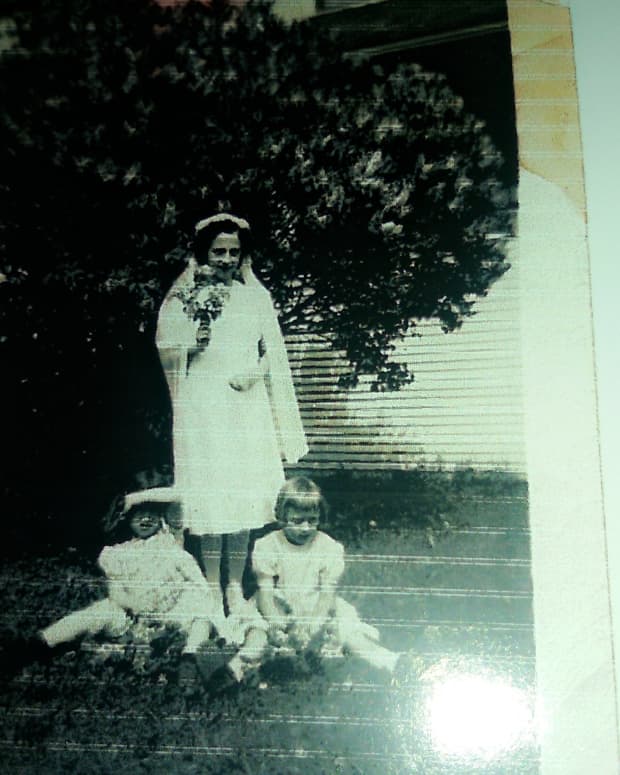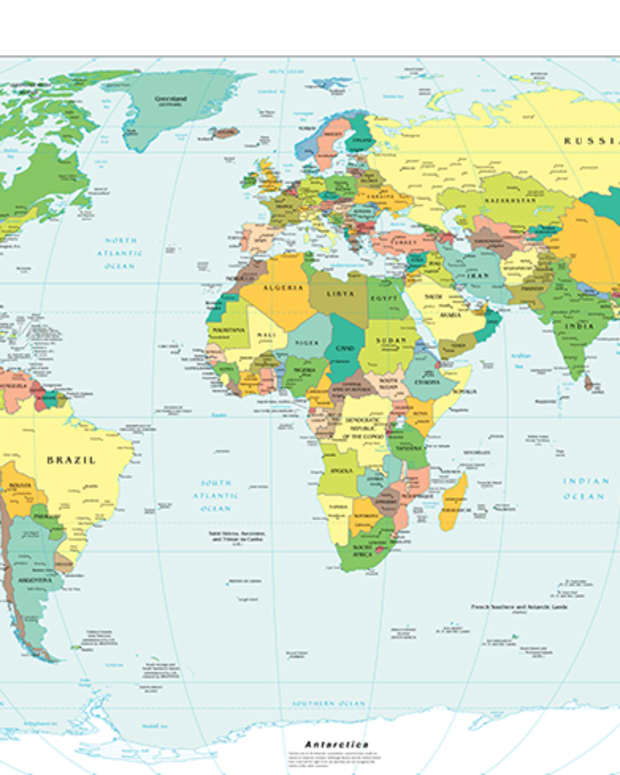DIY Clay Filters: Safe Water for All
Who needs a clay water purifier?
Unsafe drinking water is an ongoing problem in many parts of the world. And it's getting worse.Thanks to adverse climatic changes, the availability of potable water could become an issue in industrialized nations as well as developing countries--maybe even where you live.
The Adverse Effects of Dirty Water
What do people do when clean drinking water isn't available? They drink unsanitary water--with disastrous results.
According to the World Health Organization (WHO), unsafe water causes approximately 2 million people to die annually from diarrhea alone. Nineteen other potentially deadly diseases, including cholera and cancer, are also attributable to unsafe drinking water. And it isn't just bacteria that makes water unsafe to drink. High levels of fluoride and arsenic are also harmful. (For more WHO "Facts and Figures on Water Quality and Health," click here.)
It's not surprising then that people who care about the welfare of others are working to make safe drinking water available around the globe.
Clean Water for All
Kiln-Fired Clay Water Filters
Engineers Without Borders and Potters for Peace make inexpensive ceramic filters following a design created by Fernando Mazariegos, a chemist from Guatemala.The entire unit--including the water receptacle and a clay water filter--is sold in developing countries for $25 or less. By themselves, the filters cost $6 or less.
The filters are basically handleless buckets made from pressed clay, sawdust and other organic combustibles, such as coffee grounds and rice husks. The pressed clay mixture is fired in a kiln at 860 degrees Celsius, which causes the combustible material to burn away, leaving a porous clay filter. After firing, the filters are coated with colloidal silver, which is a bactericide.
The filter fits into a five-gallon receptacle, usually made of plastic or clay. It has a faucet and a lid and filters 1.5 to 2.5 liters per hour.

Coffee grounds and other organic matter are mixed with clay in Flynn's recipe for DIY water filters.
DIY Clay Water Filters
Tony Flynn of Australian National University (ANU) has designed a clay water filter that's even more accessible to the world's poor. It doesn't have to be fired in a kiln or coated with colloidal silver in order to effectively purify water. It requires no special equipment or skill to make either, and it's comprised of materials that are readily available in developing countries where sanitary water is scarce. The design, which is not patented, is free for everyone to use. The Australian nonprofit organization Abundant Water promotes the use of this design in areas of the world that lack clean water.
Flynn's water purifier is made using clay, straw, miscellaneous organic matter, water and manure. The organic material is mixed with clay and water and then "cooked" on a bed of burning dung. As the filter bakes, the organic materials burn away, leaving small pores in the filter that allow water, minus harmful pathogens like E. Coli , to pass through. According to ANU, the filter removes between 96.4 and 99.8% of all E. Coli pathogens. It does the job quickly too, although not instantaneously, filtering a liter of water in two hours.
What materials are needed?
- dry clay, crushed
- organic matter, such as rice husks, coffee grounds & tea leaves
- water
- straw
- cow or horse manure
How's it done?
First, the clay is mixed with water to form a stiff "batter." Then, it's formed into a cylindrical pot with one closed end. Next, the pot is allowed to dry in the sun. When it's completely dry, it's set in straw in a mound of manure. The straw is lit, and the fire is kept burning for about an hour. Sometimes, more manure must be added. After an hour, the clay water filter is ready to use.
Watch the Making of a Clay Water Filter
How You Can Help
- Contact FilterPure Filters :: Pure Filters Non-Profit Organization for people in need.
Donate to this U.S. nonprofit that creates point-of-use water filtration devices. - Donate | Abundant Water
Donate to Abundant Water, an Australian organization that promotes the creation of Flynn's water filters in areas of the world that lack clean water. - Engineers Without Borders - Online Donations
Donate to Engineers Without Borders. EWB does more than provide safe water. It also designs and builds schools, clinics, bridges, irrigation systems and more for impoverished peoples.
Comments
Jill Spencer (author) from United States on November 04, 2011:
@Derdriu--Yes! The filters imitate nature. So ... simple it's miraculous, if that makes any sense. Yet more people in the world have cell phones than access to safe water, and that seems crazy! Thanks for commenting. I really appreciate it.--Jill
Derdriu on November 03, 2011:
TheDirtFarmer: Thank you for such an accessible explanation of ways in which to decrease mortality rates and increase health and sanitation levels in places where technology lags and financing is absent. The filter is such an environmentally friendly way to improve water quality: its action reminds me of the phytoremediating achievements of water hyacinth and willow trees as well as rain garden soil on polluted atmospheric water and heavy metals.
Voted up, etc. is par for your articles,
Derdriu
Jill Spencer (author) from United States on September 05, 2011:
The coin trick is interesting. I wonder if that's how tossing coins into fountains for luck began? Thanks for reading, Miss Mellie, and for the feedback.
M.S. Ross on September 05, 2011:
Helpful article, Dirt Farmer! Funny, isn't it; that materials such as dirt, clay and manure should be so effective in making water clean! Silver, by the way, has long been used as an antibacterial device. It was common practice back in the day to drop a silver coin into the rain barrel to keep water fresh and sweet on an ongoing basis. Voted Up, Useful and Interesting. Bookmarked, too!
Jill Spencer (author) from United States on September 05, 2011:
Thanks, Farmer Brown. The kiln-fired filters with colloidal silver applied inside and out do reduce giardia in water. If they're well-scrubbed, they work as effectively after 7 years as they did when first made, according to a study posted at the Potter for Peace website: http://s189535770.onlinehome.us/pottersforpeace/?p...
Thanks for reading!
Farmer Brown on September 05, 2011:
Fantastic! "Up and useful"
I wonder if these filters would work for Giardiasis. I suspect that my brother and I got a good case of it when we took a trip to the Philippines as a result of eating fresh, newly rinsed fruit.
Jill Spencer (author) from United States on September 05, 2011:
Rosie, I've been unable to find any information about the longevity of either of the clay pot types. Sorry. Thanks for commenting. Jill
Audrey Surma from Virginia on September 05, 2011:
Very interesting information. How durable are these filters? How long do they last? Sounds like a good great immediate solution to a huge problem.



















